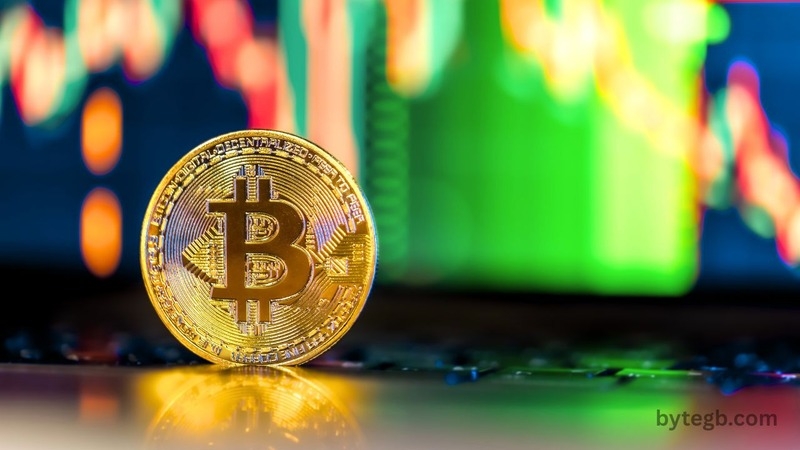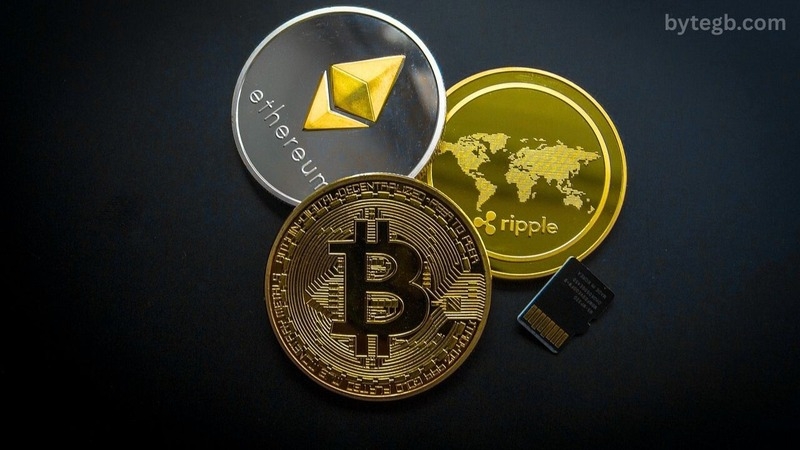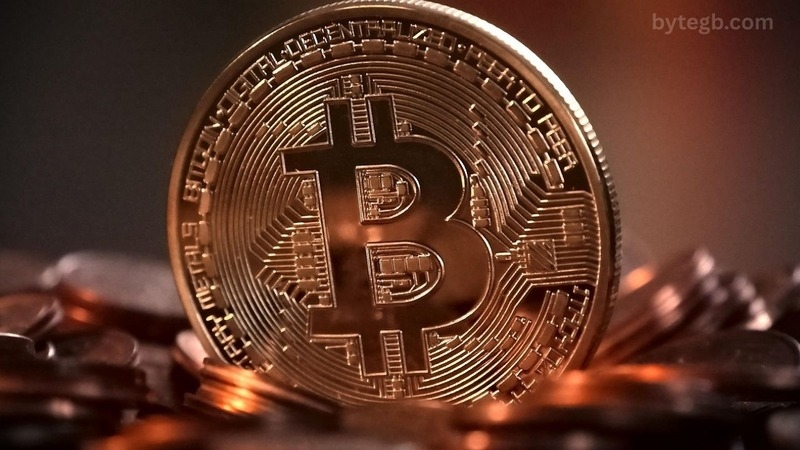TL;DR: Why Cryptocurrency Is Banned in Pakistan
- The SBP first barred banks from dealing in cryptocurrencies in 2018 due to safety concerns. Fraud, scams, and FATF pressure drove the cautious stance.
- Officially, crypto trading remains unregulated (effectively banned) in 2025, though a new regulatory authority (PVARA) and law have been approved.
- Despite the ban, Pakistan is one of the top 10 countries in the world for the adoption of cryptocurrencies. Millions hold crypto privately.
- Regulators continue to stress risk and demand clear regulations despite the efforts of activist Waqar Zaka to lift the ban through court battles and petitions.

Understanding the reasons behind the question: Why Cryptocurrency Is Banned in Pakistan.
Pakistan frequently adopts new technology more slowly and bans it more quickly. Featured Answer: Cryptocurrency trading has been effectively banned in Pakistan due to concerns about financial risk, fraud, and FATF (anti-money laundering) compliance. The central bank warned that crypto can facilitate scams and money laundering. Pakistan’s official stance (for 2018–2024) was that crypto is not legal tender and no entity is licensed to deal in it. In 2025, the government is setting up a regulator (PVARA) to control crypto, but there is still no open market yet. Why Cryptocurrency Is Banned in Pakistan is a question that remains relevant as regulations evolve.
History of the Crypto Ban in Pakistan (2018–2025)
Unpacking the Reasons: Why Cryptocurrency Is Banned in Pakistan
In April 2018, the State Bank of Pakistan (SBP) issued a circular warning banks to “refrain from processing, using, trading, [and] holding” cryptocurrencies like Bitcoin. The circular stressed that virtual currencies are “not legal tender, issued or guaranteed by the Government of Pakistan,” and no one is licensed to sell or trade them. This effectively cut off banks and payment services from crypto. Shortly after, SBP released a public notice listing major risks: extreme price volatility, exchange hacks, Ponzi scams, and anonymity used for illegal activity. The notice even warned that “transferring value outside Pakistan” via crypto can lead to prosecution. In other words, moving funds abroad with cryptocurrency could violate FX and money-laundering laws.

🔸 Did You Know? Despite
Despite the ban, it is estimated that more than 9 million people in Pakistan own cryptocurrency. Since official banking channels are prohibited, many people trade on unofficial peer-to-peer platforms or apps.
The federal government largely kept things the same after 2018. In December 2020, the Khyber Pakhtunkhwa (K-P) provincial assembly even passed a resolution urging the federal government to legalize crypto and crypto mining. This illustrated the tension between tech enthusiasts and regulators. In 2020, activist Waqar Zaka filed a petition in the Sindh High Court challenging the SBP ban (see “Waqar Zaka” section below). The SBP responded by confirming it never declared crypto illegal—just that no law currently allows it.
Understanding Why Cryptocurrency Is Banned in Pakistan
In late 2022 and 2023, Pakistan continued to discuss crypto. In March 2025, the government created the Pakistan Crypto Council (PCC) to build a regulatory framework, and by mid-2025, it approved a Virtual Assets Act (PVARA) to license and supervise crypto businesses. This was a big shift: for the first time, a law was passed to regulate (not ban) crypto. However, until rules take effect, SBP’s 2018 circular still effectively prohibits banks from dealing in crypto and requires any crypto transfers to be reported.
Why Crypto Is Banned: Central Bank and FATF Concerns
The core reasons for the ban have always been financial risk, fraud, and international regulatory pressure. SBP leadership repeatedly emphasized that virtual currencies have high risks for ordinary people. The SBP notice highlights that crypto’s anonymous nature can facilitate illicit activities like money laundering or Ponzi schemes. It warned that “fraudsters are offering pyramid-style investment schemes” promising unrealistic returns. In Pakistan, where awareness and tech literacy vary, regulators feared investors would get cheated with no legal recourse if things went wrong.

💡 Quick Tip: Always do thorough research on cryptocurrency. Use well-known global exchanges and carefully read reviews. Avoid unverified local “get rich quick” crypto apps or schemes.
Another major factor is Pakistan’s obligation to the FATF (Financial Action Task Force). Pakistan has long worked to meet global anti-money-laundering standards. Crypto’s cross-border nature makes it harder for authorities to trace funds. Recently urged Pakistan to tighten controls on virtual assets to avoid its grey-list status. An April 2025 Arab News article notes that Pakistan’s new crypto laws aim to “ensure full alignment with Financial Action Task Force (FATF) guidelines.” Thus, by banning or strictly regulating crypto, Pakistan seeks to show it controls potential abuse in line with global rules.
International voices echo similar concerns. Christine Lagarde, head of the IMF/ECB, famously warned that Bitcoin was “a highly speculative asset [that] has conducted some funny business and some reprehensible money laundering activity.”* She insists, “There has to be regulation… at a global level.” Views like these support Pakistan’s prudence by implying that cryptocurrency cannot be disregarded without supervision.
🛑 Common Mistake: A common error by new crypto investors is falling for Ponzi crypto schemes. These frauds promise huge returns with “guaranteed” profits. Pakistan’s ban means even legitimate crypto transfers must go underground, so shady operators have thrived. Always remember: if an opportunity sounds too good to be true, it probably is.
Comparison Table: Pakistan vs. India vs. USA (Legality & Adoption)
The chart below compares Pakistan’s crypto status to two large markets:
Country
Legality (2025)
Global Adoption Rank
Estimated Crypto Users
Pakistan
Unregulated/Developing (regulator created 2025; crypto trading not officially allowed yet)
9th
~16 million
India
Regulated (crypto legal with 2022 tax law, 30% gains tax, 1% TDS; draft rules pending)
1st
~93 million
USA
Legal/Regulated (treated as a commodity or property; exchanges must comply with AML/KYC)
4th
~53 million
- Pakistan: Crypto is not legally approved for banks or exchanges, but new laws are coming. Millions still trade it quietly.
- India: After briefly banning crypto banking, India now allows crypto under strict regulation. It taxes crypto profits at 30% and is drafting further laws. India is the top crypto market by adoption.
- USA: Cryptocurrency is fully legal. The U.S. regulates exchanges (like Binance US) under its banking laws and has introduced Bitcoin ETFs. Adoption is very high (Chainalysis ranks the U.S. 4th globally).
This table shows that legality varies widely. Pakistan’s future path seems to align with those legal frameworks (like India’s or the U.S.’s), but with tighter Islamic finance oversight. For now, Pakistan is closer to a “restricted” model, with heavy controls and a ban for the public, whereas India and the U.S. have embraced crypto with rules.
Top 10 Countries with the Most Crypto Users
Who uses crypto the most? A 2024 study shows the top 10 countries by actual Bitcoin adoption. They are:
- India—Ranked 1, with about 119 million crypto owners (over 8% of its population).
- Nigeria – Ranks #2, with a very high adoption rate (over 22% of people) due to currency inflation.
- Indonesia – #3, strong youth interest in crypto.
- United States – #4, with roughly 53 million cryptocurrency owners (15.5% of Americans).
- Vietnam – #5, young population using crypto for savings.
- Ukraine – #6, surged during economic uncertainty.
- Russia – #7, crypto use persisted even with government restrictions.
- Philippines – #8, significant remittance use.
- Pakistan – #9, Despite the ban, adoption was surprisingly high.
- Brazil – #10, growing interest as an emerging market.
The list shows Pakistan punching above its weight—ranked 9th globally, even though crypto is not legally traded. Triple-A data similarly notes Pakistan has ~15.9 million crypto users (6.6% of the population). This underscores that demand is there. For context, India (rank 1) has an estimated 93 million crypto users, and Nigeria (rank 2) has about 13 million.
Chart (Global Adoption Trend 2015–2025): Crypto use has grown massively. For example, worldwide crypto ownership rose from roughly 3-4% of the population in 2017 to 6.8% (≈562 million people) by 2024. (This reflects bull runs and wider awareness.) This explosive growth is why countries like Pakistan are racing to regulate.
Practical Use Cases of Crypto in Real Life
Despite risks, cryptocurrencies have real-world uses that interest people everywhere, including Pakistanis who believe in blockchain tech. Here are common crypto use cases:
Cross-border Remittances:
Crypto can make sending money abroad faster and cheaper. No bank needed, just blockchain transfers. This is key for Pakistani freelancers or migrant workers sending money home. As Britannica notes, crypto “makes cross-border payments more efficient—simpler, faster, and even cheaper.”

Online Purchases:
Some online retailers, software services, or retailers accept Bitcoin and other coins. People buy gift cards, games, or goods using crypto wallets. It’s like digital cash.
Peer-to-Peer Payments:
Friends can send crypto directly to each other via phone. This can be handy if traditional banking apps are hard to use or blocked.
Content Tipping and Rewards:
Websites and social media allow tipping in crypto (e.g., Bitcoin Lightning tips on Twitter). Creators worldwide earn crypto donations directly.
Investment/Store-of-Value:
Many users buy crypto hoping it will increase in value. Some Pakistanis see Bitcoin as a hedge against rupee inflation or banking instability. (However, this is speculative.)
Decentralized Finance (DeFi):
Advanced use: crypto allows loans, interest accounts, and savings programs without banks. For example, lending crypto on a DeFi platform can earn yield. This is still niche but growing globally.
Blockchain Innovation:
Separately, Pakistan is exploring blockchain for national ID, voting, and land records. These aren’t cryptocurrency uses, but they apply similar tech. For example, Pakistan is piloting blockchain for tracking identity.
In practice, the most popular cases today are remittances and international payments. Many Pakistanis use crypto to transfer money abroad when banks limit forex transactions. The no-fee nature of blockchain can save on transfer costs. Britannica highlights the appeal: crypto’s decentralized network makes everyday money tasks smoother for global users.
The Future of Crypto in Pakistan

Pakistan’s crypto future is becoming clearer. Instead of outright banning, authorities are moving toward strict regulation. The new Virtual Assets Act (2025) and Pakistan Crypto Council show an ambition to turn blockchain tech into an economic tool. For instance, in 2025, the government announced plans to create a “strategic Bitcoin reserve” and provide Bitcoin miners with inexpensive hydropower, although the IMF blocked that plan. These moves reflect seeing crypto as a potential revenue and tech sector, not just a threat.
By regulating, Pakistan may attract foreign investment in fintech and crypto. The law aims to align with international norms, which could help Pakistani companies do global crypto business safely. At the same time, regulators warn they will enforce anti-fraud, AML, and Islamic finance rules. So future crypto platforms must meet many safeguards.
Predictions:
- If PVARA properly licenses exchanges, we could see formal crypto businesses (exchanges, funds) in Pakistan, perhaps by 2026.
- Banks might eventually be allowed to offer crypto products (e.g., crypto-linked debit cards) under regulatory oversight.
- Young tech entrepreneurs and investors are pushing for these changes; survey data suggests many Pakistani students and freelancers await legal crypto for freelance payments and entrepreneurship.
- The global crypto boom (ETFs, CBDCs) may also boost Pakistan’s interest. The government is even exploring a digital rupee, like other countries’ CBDCs.
- Overall, Pakistan’s stance is shifting from fear to “controlled integration.” The next few years will reveal if crypto becomes a mainstream part of Pakistan’s digital economy or remains mostly underground. In either case, the community has already shown strong interest and capability to innovate.
FAQs
Q: Why is cryptocurrency banned in Pakistan?
A: Because regulators see it as high-risk. The State Bank has warned of scams, volatility, and money laundering in crypto. Pakistan lacked a legal framework, and to comply with global rules (FATF), authorities instructed banks to avoid crypto. No law outright bans private ownership, but exchanges are not licensed, making trading effectively prohibited.
Q: Is crypto legal in Pakistan in 2025?
A: Not fully. As of now, Pakistan does not officially license crypto trading, so dealing through banks or exchanges is not allowed. However, new laws (2025) are creating a regulator to legally regulate crypto. Until the rules are published, crypto trades remain in a gray area.
Q: What are the penalties for crypto trading in Pakistan?
A: Since there is no direct criminalization of owning crypto, penalties depend on related offenses. SBP cautioned that unreported foreign remittances via crypto could violate foreign exchange laws. Law enforcement (FIA) has occasionally investigated crypto as “illegal foreign exchange.” In practice, enforcement has been limited and focused on fraud cases. The long-term regulatory regime (post-2025) will likely define penalties clearly.
Q: Is cryptocurrency halal (permissible) or haram (forbidden) in Islam?
A: Scholars differ. Some argue that crypto is speculative and not backed by tangible assets, making it haram. Others say that if properly used (e.g., backed stablecoins, transparent contracts), it could be halal. A Shariah board will be involved in Pakistan’s new legislation to guide it on this. For now, Muslims interested in crypto should consult Islamic finance experts and proceed cautiously.
Q: What is Waqar Zaka’s role in all this?
A: Waqar Zaka is a Pakistani media personality who became a crypto activist. He challenged the 2018 ban in court (petitioning for legalization) and used social media to promote crypto education. His legal and public campaigns helped raise awareness and pressure for clearer crypto laws.
Q: How does Pakistan compare with other countries on crypto adoption?
A: Pakistan has a very high crypto usage rate (roughly ninth in the world) despite the ban. Pakistanis flock to crypto via informal means. This is similar to countries like Nigeria and Vietnam, where usage is high even without official support. In contrast, many Western countries (the USA, the UK, and the EU) have legal crypto markets. A list of banned countries includes China, Bangladesh, and others, while the legal countries list includes the US, Canada, EU states, etc.
Q: Is crypto investment a common mistake?
A: Be careful. Many Pakistanis invested in crypto without understanding the risks. With the formal ban, payment delays and scams have been common. Key advice: only trade on trustworthy international platforms, avoid dubious local apps, and never invest money you can’t afford to lose.
Case Study: India vs. Pakistan Adoption
India and Pakistan, two large South Asian economies, offer an interesting comparison:

- Adoption: India is #1 in global crypto adoption, with an estimated 119 million crypto owners (about 8.2% of its people). Pakistan is #9, with roughly 16 million users (~6.6% of the population). Both have significant grassroots interest, partly due to young, tech-savvy populations.
- Regulation: India initially had a banking ban (2018 RBI circular), but its Supreme Court overturned that in 2020. Since then, India has legalized crypto under regulation. The 2022 Finance Act imposed a 30% tax on crypto gains and a 1% TDS on transactions, and more rules are pending. India’s government has been cautious but open to the crypto industry’s growth.
In contrast, cryptocurrency trading through banks was never permitted in Pakistan. Until 2025, banks must block crypto transactions. Only now (2025) is Pakistan moving to formal regulation via PVARA. In other words, India is already an operating crypto market (albeit with high taxes), whereas Pakistan is just creating its crypto market. - Government Stance: India’s approach has evolved from skepticism to pragmatic regulation. Its stance is to allow crypto but control risks. Pakistan’s stance has been stricter—a moratorium, though it’s shifting towards regulation. Notably, Pakistan’s push partly came from local innovators like Waqar Zaka, whereas India’s change has been driven by economic policymakers.
- Use Cases: In both countries, remittances and freelance payments are key use cases. Indian expatriates often use crypto to send money back, similar to Pakistanis abroad. Both have vibrant peer-to-peer markets. However, India also has a booming crypto startup scene (exchanges, wallets) supported by its new rules, whereas Pakistan’s startup ecosystem is still nascent in crypto.

Example:
When India recently relaxed crypto rules, its user base surged. Conversely, many Pakistanis moved to peer-to-peer platforms or used foreign exchanges whenever possible. A Crypto Council official noted that “Pakistan is among the world’s promising frontier markets for digital assets,” with millions of users trading informally. This suggests Pakistan’s latent crypto demand matches or even exceeds that of regional neighbors, even under a ban.

